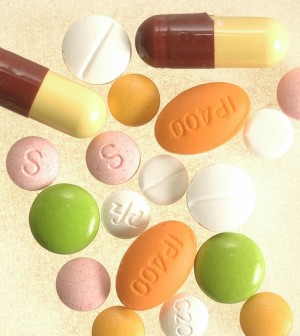- Double Mastectomy May Offer No Survival Benefit to Women With Breast Cancer
- Toxic Lead Found in Cinnamon Product, FDA Says
- Certain Abbott Blood Sugar Monitors May Give Incorrect Readings
- Athletes Can Expect High Ozone, Pollen Counts for Paris Olympics
- Fake Oxycontin Pills Widespread and Potentially Deadly: Report
- Shingles Vaccine Could Lower Dementia Risk
- Your Odds for Accidental Gun Death Rise Greatly in Certain States
- Kids From Poorer Families Less Likely to Survive Cancer
- Tough Workouts Won’t Trigger Cardiac Arrest in Folks With Long QT Syndrome
- At-Home Colon Cancer Test Can Save Lives
Tips for Preventing, Coping With Pinkeye


SATURDAY, Sept. 28With children back in school, cases of a highly contagious infection called pinkeye (conjunctivitis) are likely to rise, an expert says.
“This common medical condition is around all year. Since it can spread so easily it’s more common when school is back is session and kids are in close contact and touching similar surfaces,” Dr. Khalilah Babino, an urgent care physician at Loyola University Health System, said in a Loyola news release.
Pinkeye is a hassle for students, parents and teachers, the release noted. The condition occurs when the conjunctiva — a membrane that lines the inner surface of the eyelids and white portions of the eye — become red and swollen due to inflammation.
“Contrary to popular belief pinkeye is not always due to a bacterial infection. It can also be caused by viruses, allergens and irritants. These types of conjunctivitis will typically resolve spontaneously without additional treatment,” Babino said.
But she noted that bacterial conjunctivitis is extremely contagious and can quickly spread through a household or classroom.
“Bacterial conjunctivitis can be the result of infection from one of several bacterial organisms. Transmission is from person to person contact, secretions from an affected person or infected surfaces. If you suspect you have this type of infection it’s best to see your medical provider as soon as possible,” Babino said.
She offered the following tips for preventing and dealing with bacterial pinkeye:
- Wash your hands frequently with warm soapy water for at least 15 to 20 seconds each time.
- Use alcohol sanitizer when water and soap are not available.
- Avoid eye make-up during an infection and throw out any used eye make-up as it probably is contaminated.
- Take out contact lenses and wear glasses instead until the infection is cleared.
- Thoroughly clean your contact lens case and throw out disposable contacts.
- Avoid touching your eyes with your fingers — this is how conjunctivitis is commonly transmitted from one eye to the other.
- Avoid school or work until you have had at least 24 hours of treatment with antibiotics.
More information
The American Academy of Ophthalmology has more about pinkeye.
Source: HealthDay
Copyright © 2024 HealthDay. All rights reserved.










